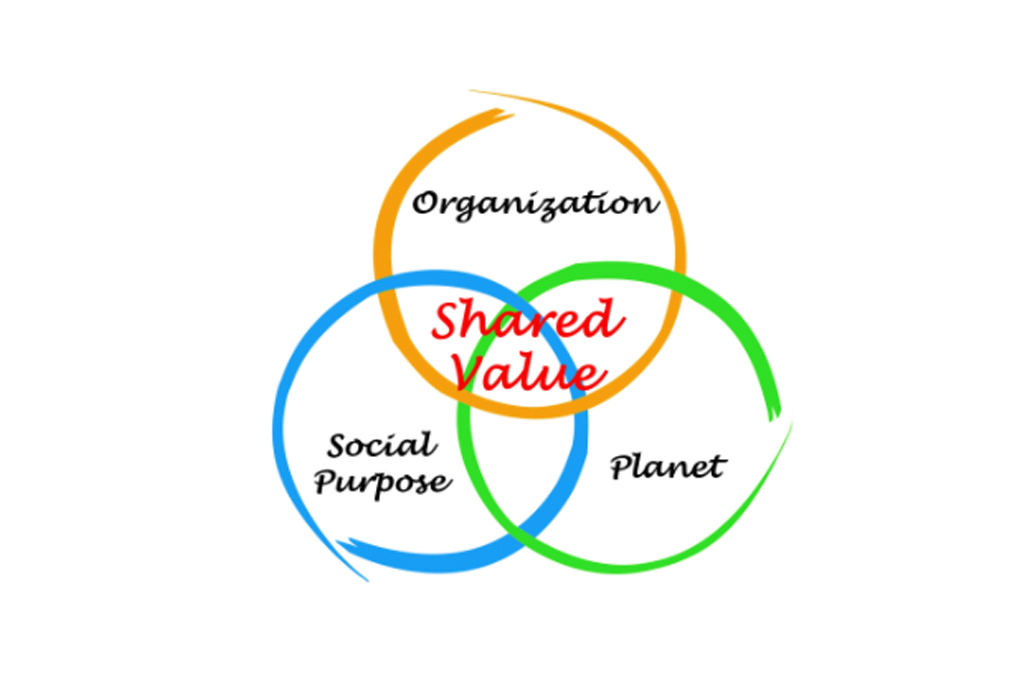Shared Value concepts
The EU furniture manufacturing industry is being faced by challenges affecting its labour force: an ageing workforce, the difficulties to attract and retain young talent and its low appeal for qualified professionals. Deploying Corporate Social Responsibility (CSR) practices and Creating Shared Value can be potential ways to attract and retain young, qualified talent. Sharing value with employees may make companies more competitive and workers more satisfied, as it is believed that the company competitiveness and the health and well-being of the communities around it (e.g. employees, customers, suppliers, society, public administration, etc.) are mutually dependent.
The European Commission defines CSR as “the process whereby enterprises integrate social, environmental, ethical and human rights concerns into their core strategy, operations and integrated performance, in close collaboration with their stakeholders, with the aim to 1) maximise the creation of Shared Value for their owners/shareholders, for other stakeholders, and for society at large; and 2) identify, prevent, and mitigate their possible adverse impacts.”
However, implementing CSR practices may be challenging for small and medium enterprises (SMEs) due to their limited resources and to the lack of practical guides or tools. Therefore, there is a clear need for guides and tools for EU furniture manufacturing SMEs to deploy shared value practices that may help them to attract, retain, and motivate young, qualified talent, and become more competitive, and to implement CSR practices that may generate positive economic, social and environmental impact.

Creating Shared Value – A broader notion of value, from primarily economic to also social and environmental
Shared Value offers an extended interpretation of value creation resembling a triple bottom line approach integrating people, planet, and profit in furniture businesses. We use corporate sustainability to refer to an integration of business activities with environmental and social management to create economic value, healthy ecosystems, and strong communities. If successfully implemented, corporate sustainability may lead to create Shared Value. Therefore, the company’s business interests become a lever to enhance environmental and social well-being, by redefining markets, revising value creation processes, and renewing business–community relationships. The former two aspects directly speak to business model innovation.
In this context, the goal of the FURNCSR project is to demonstrate that a triple bottom line approach to business model innovation will make it more sustainable over time.
To be successful, it is very important to consider the complexity of a company’s internal and external processes, addressing at least the following key aspects in today’s furniture business activities:

Internal processes:
- Employees
- Governance and business structure
- Key resources
- Key activities
- Value chain and allies
External processess:
- Value proposition
- Clients and beneficiaries
- Stakeholders
- Relationship spaces and channels
FURNCSR will provide a comprehensive overview of business models for shared value, and new avenues for future exploration in the furniture sector. Project results will also include guidance, showing how furniture businesses can strategically move toward shared value models, therefore acting as vehicles for addressing social and environmental issues and truly transforming their business structure in a meaningful way.
The European Commission recommends using clusters to identify and implement shared value initiatives to address societal challenges at the community level, given their capacity to connect stakeholders in the value chain and to provide inter-disciplinary leadership.
Following an “encouragement” approach to furniture enterprises and clusters integrating and providing solutions for implementation of a shared value business strategy can help the sector to open up new business opportunities, make efficiency gains, to attract and retain employees, consumers and customers, to better manage short- and long-term risks, to drive innovation, to undertake due diligence in their supply chains, and to invest in lifelong learnability and employability.
